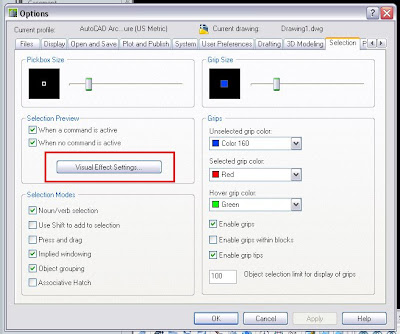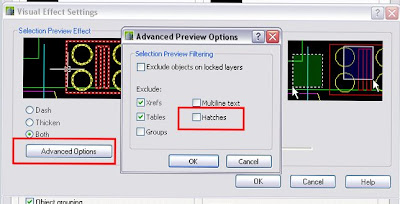Català - Castellano - Deutsch
New versions come sometimes with some nice surprises. One I just discovered by using AutoCAD 2010 at work is the XDWGFADECTL system variable. We had seen long ago on a previous post how to control the fading of locked layers and the objects seen outside the REFEDIT mode. Just as a quick reminder on that since that is a very old post.
LAYLOCKFADECTL directly controls the intensity of the fading of locked layers.
XFADECTL is used to control the fading when we enter the REFEDIT mode (everything that does not belong to the XREF that we enter to edit in place will be faded).
This was what we had available so far. In case we wanted to fade the XREF, my common procedure was to set the fading of the LAYLOCKFADECTL to between 30 and 50% (depending on the screen), be sure that all my XREFs where in one layer, and lock that layer. This would allow me to see my XREFs fades, making very easy to understand what was in the current drawing and what was a reference.
The only problem with this is that sometimes, when we had to move those XREFs, we had to unlock the layer and lock it after finishing the operation. Minor nuisance maybe, but it has disappeared from now on.
XDWGFADECTL is one of the new system variable added to AutoCAD 2010 that allows to control how XREFs are faded. It is useful. It might seem a minor tweek, but when you are using a dwg as an underlay to draw something else, it is really practical to see this dwg faded. And although this could be done before with the locked layers fading, now we have a second way to do it to suit every situation (or almost every)
Remember that there is a list of all the system variables that have been explained at CAD-Addict following this link.
Show me more...















